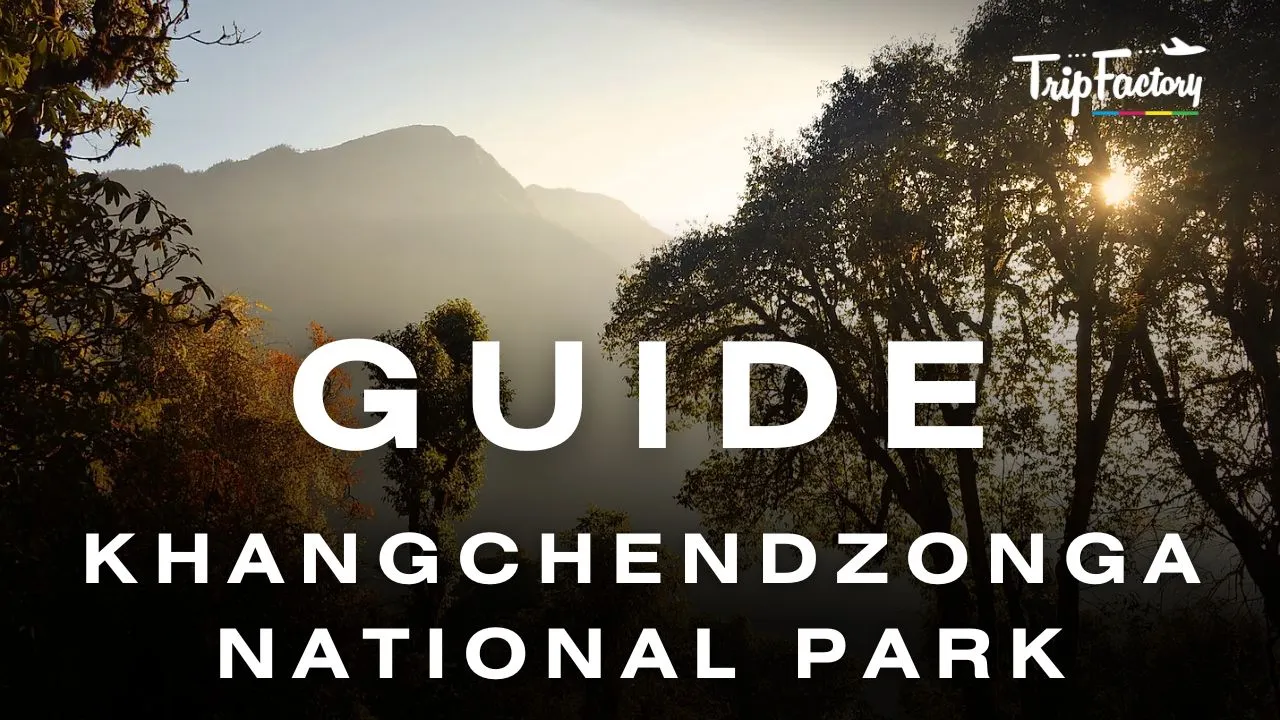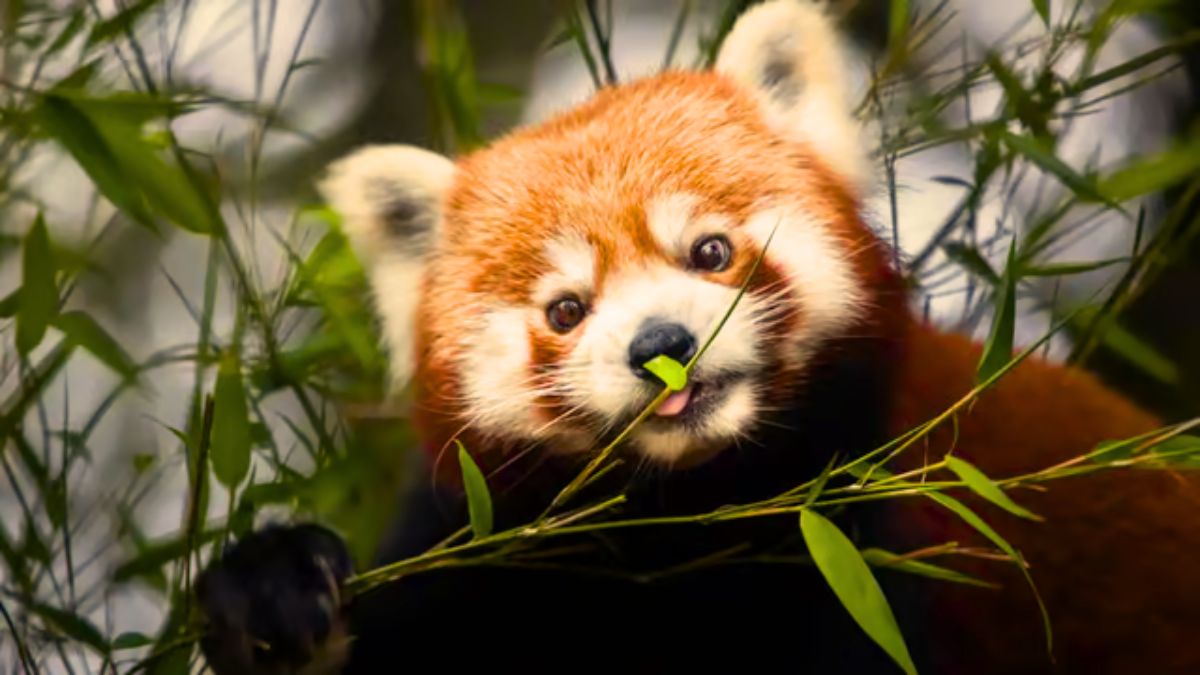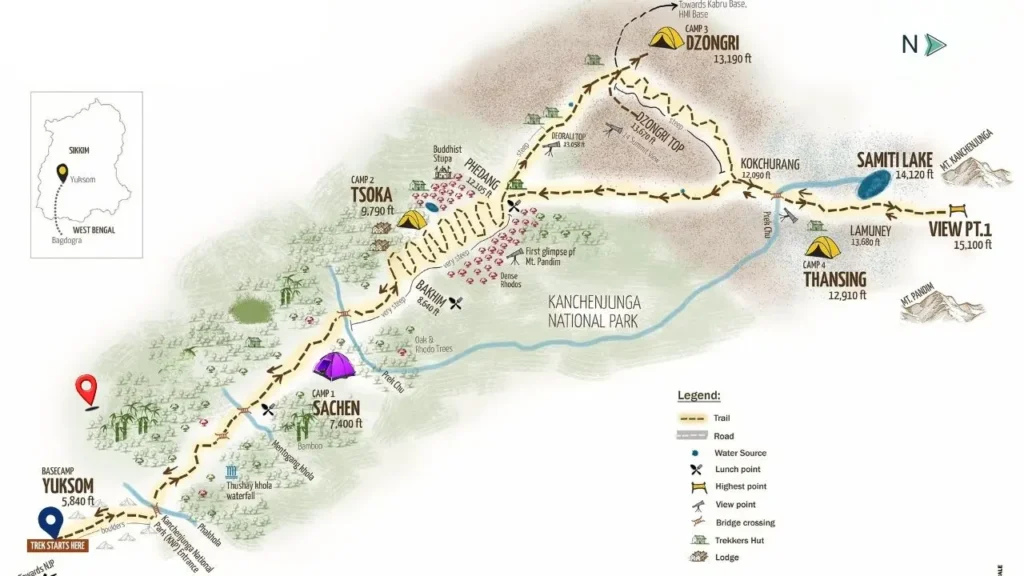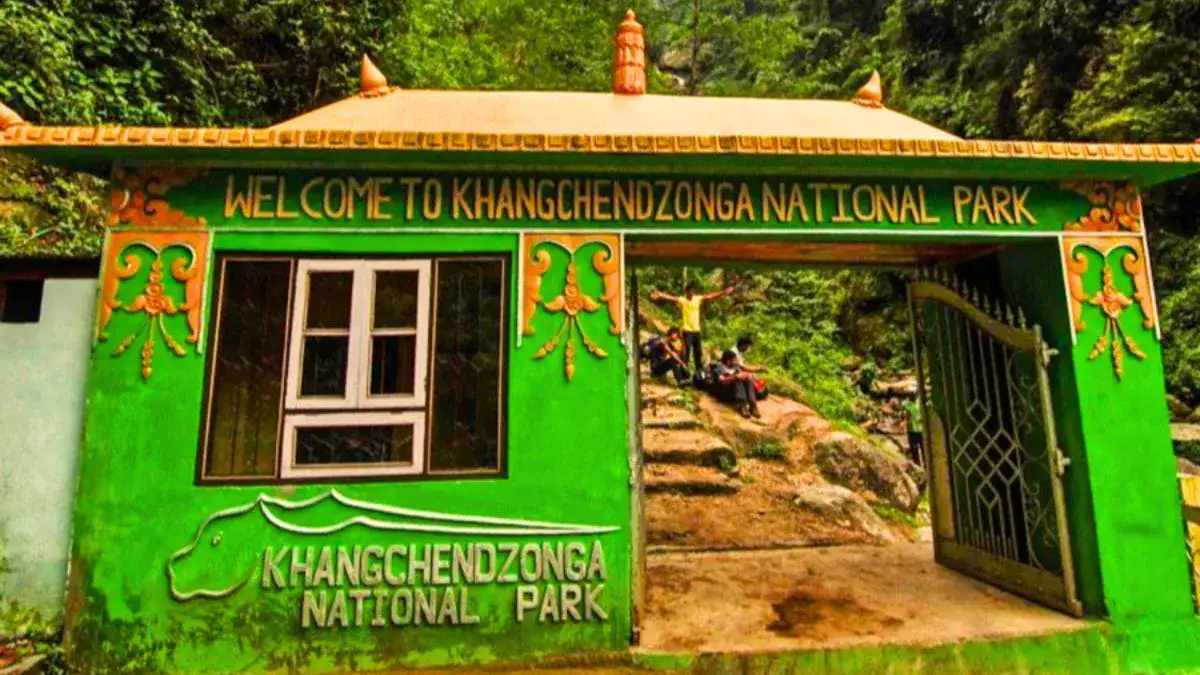Khangchendzonga National Park in Sikkim feels like a world where mountains, forests, and wildlife live together naturally. The park stretches across snowy peaks, thick forests, and deep valleys and spread over 1,784 square kilometers. As you explore, you might spot animals like the Red Panda, Snow Leopard, or Himalayan Black Bear moving through their home.
To enter the park, visitors need a permit usually ₹200 for Indians and ₹400 for foreigners and the gates are open from 9 AM to 5 PM. It’s good to start your visit early to enjoy the full day at this park there are few simple rules to keep it safe and clean: don’t litter, avoid loud noise, and respect the wildlife.
Khangchendzonga National Park, also part of the Kanchenjunga Biosphere Reserve, was named a UNESCO World Heritage Site in 2016. It’s a place where you can truly feel close to nature, whether you love trekking, watching birds, or just enjoying the fresh mountain air
Detailed Khangchendzonga National Park Guide
About Khangchendzonga National Park
Beyond its natural beauty, Khangchendzonga National Park is also rich in culture and history. It is the first Mixed Heritage Site in India, meaning it is recognized not just for nature but also for its deep cultural ties.
The Lepcha people, who are among the oldest communities in Sikkim, consider Mount Kanchenjunga and the surrounding area sacred. Their legends, prayers, and traditions are closely linked to the mountains and forests inside the park.
The park is full of different landscapes, from high altitude lakes and deep valleys to old forests filled with oaks, firs, and colorful rhododendrons. Over 400 types of flowering plants grow here, along with rare orchids.
Popular trekking routes like the Goechala Trek take travelers close to snow covered peaks, clear blue skies, and quiet valleys. Visiting Khangchendzonga National Park gives you a real taste of Sikkim’s wild nature and old traditions, all in one place.
Khangchendzonga National Park Photos
Snowy mountains, clear lakes, and colorful forests make Khangchendzonga National Park perfect for photos. Every view feels special.
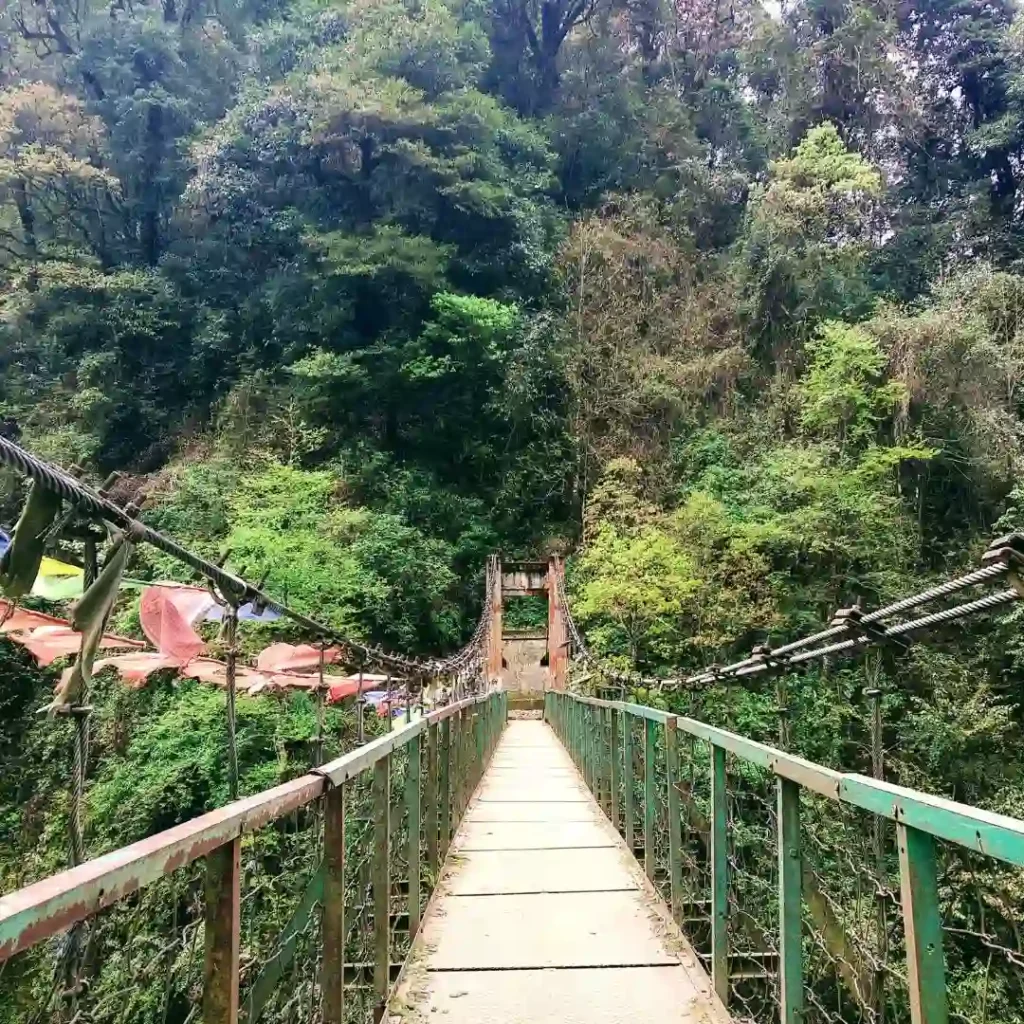
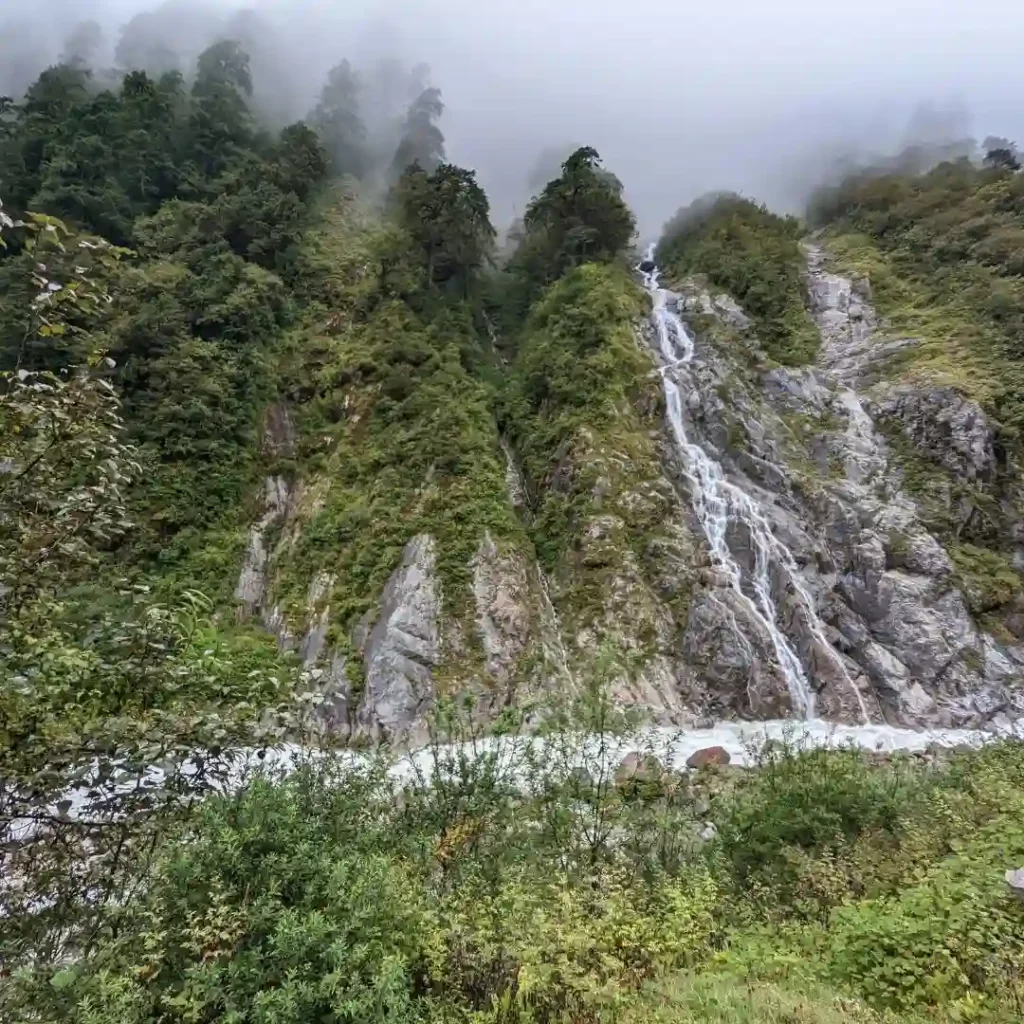
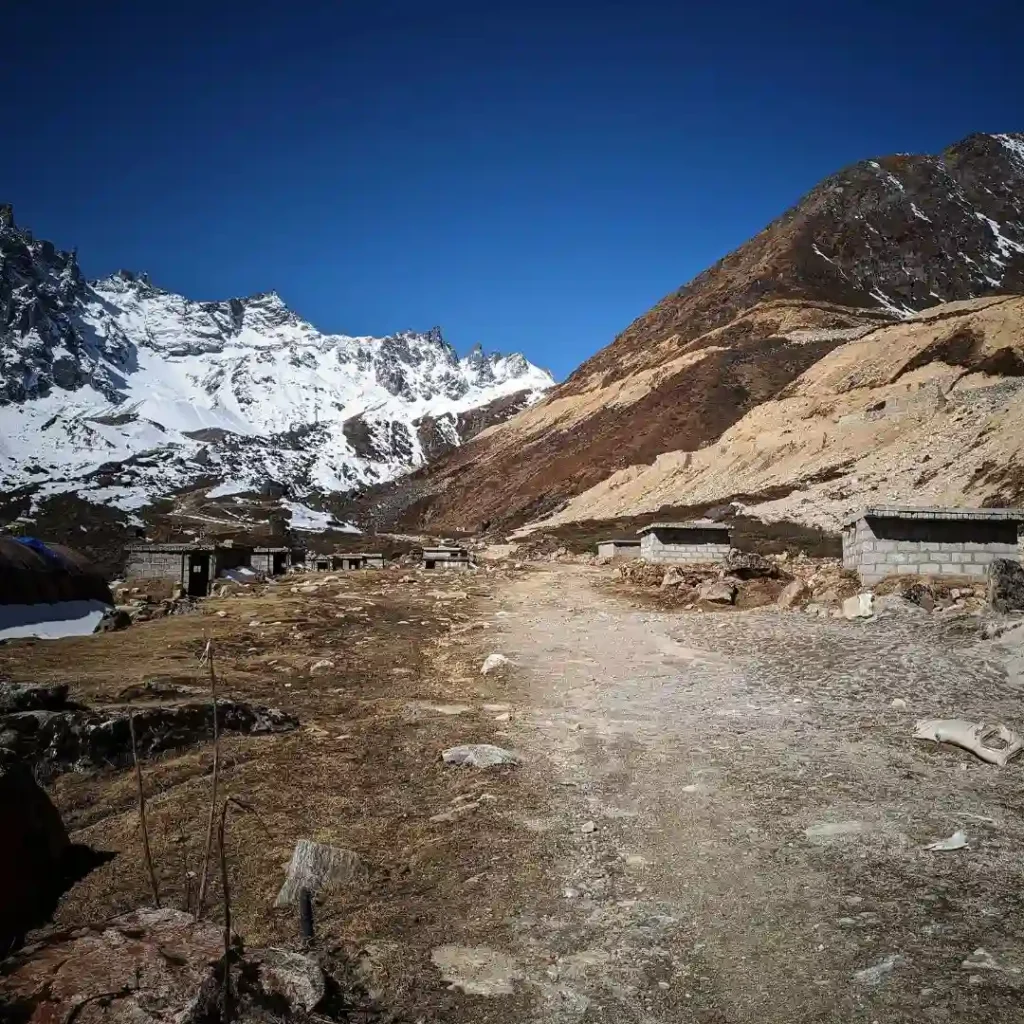
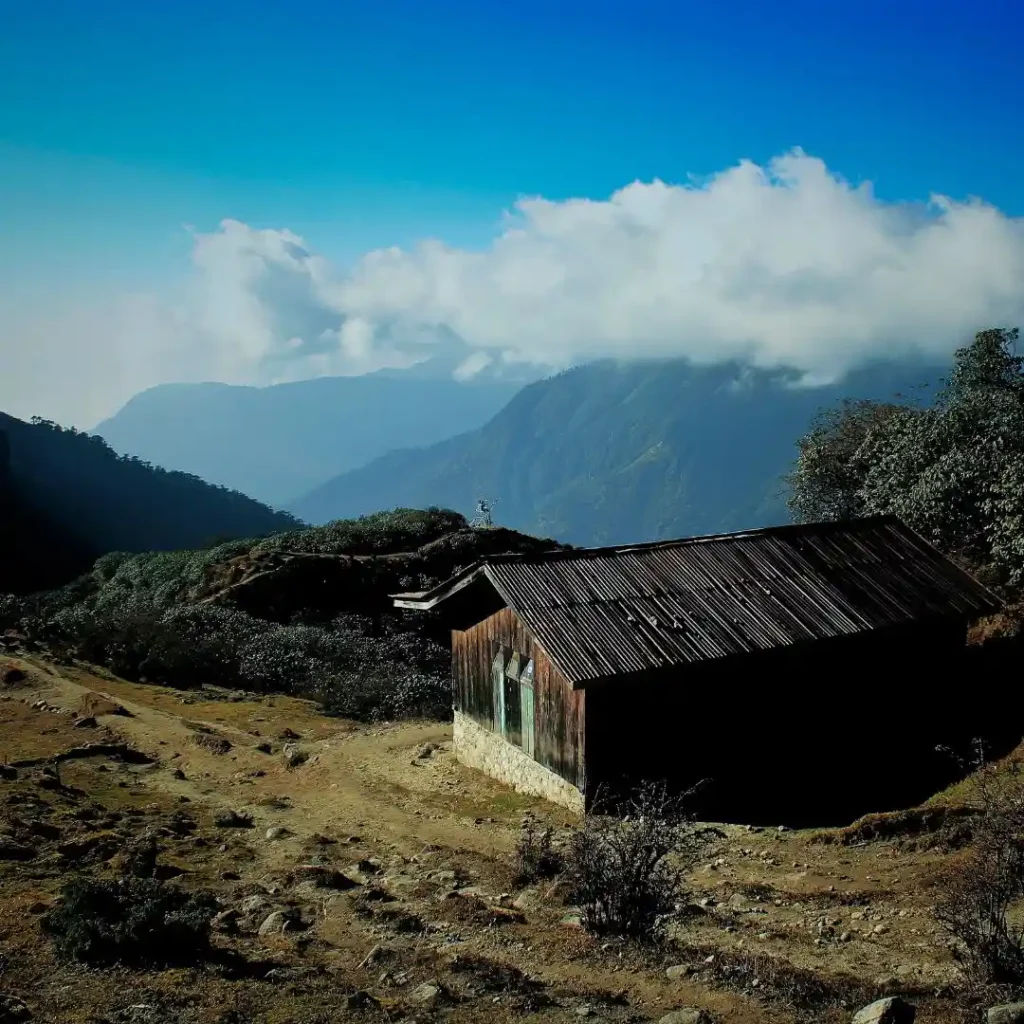
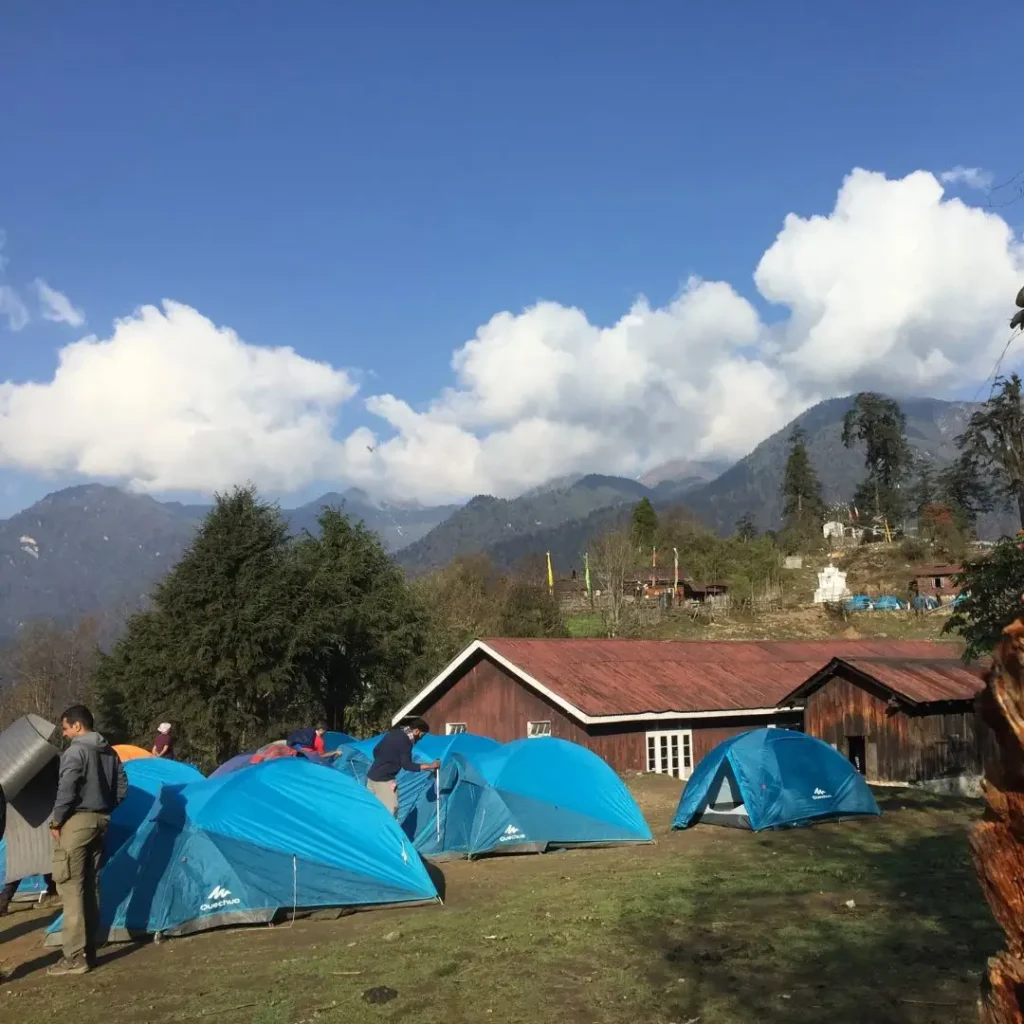
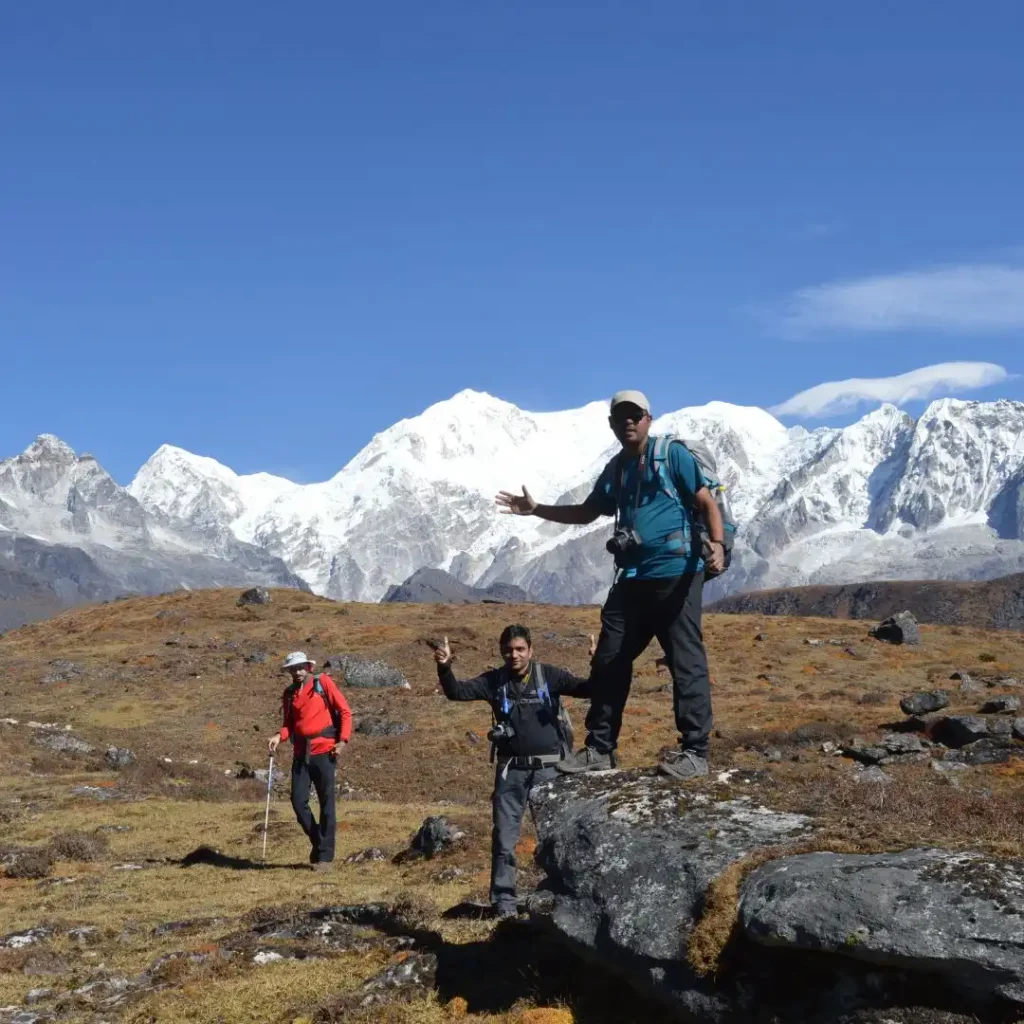
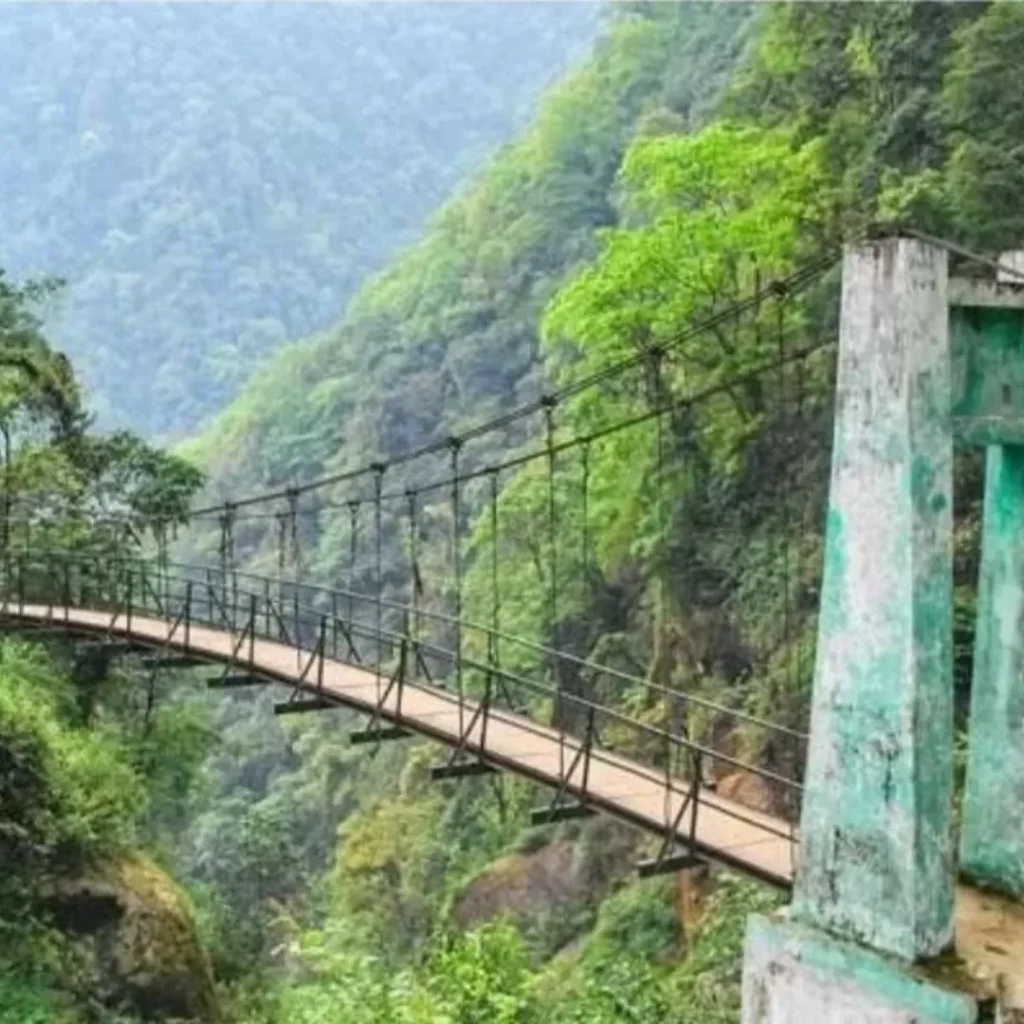
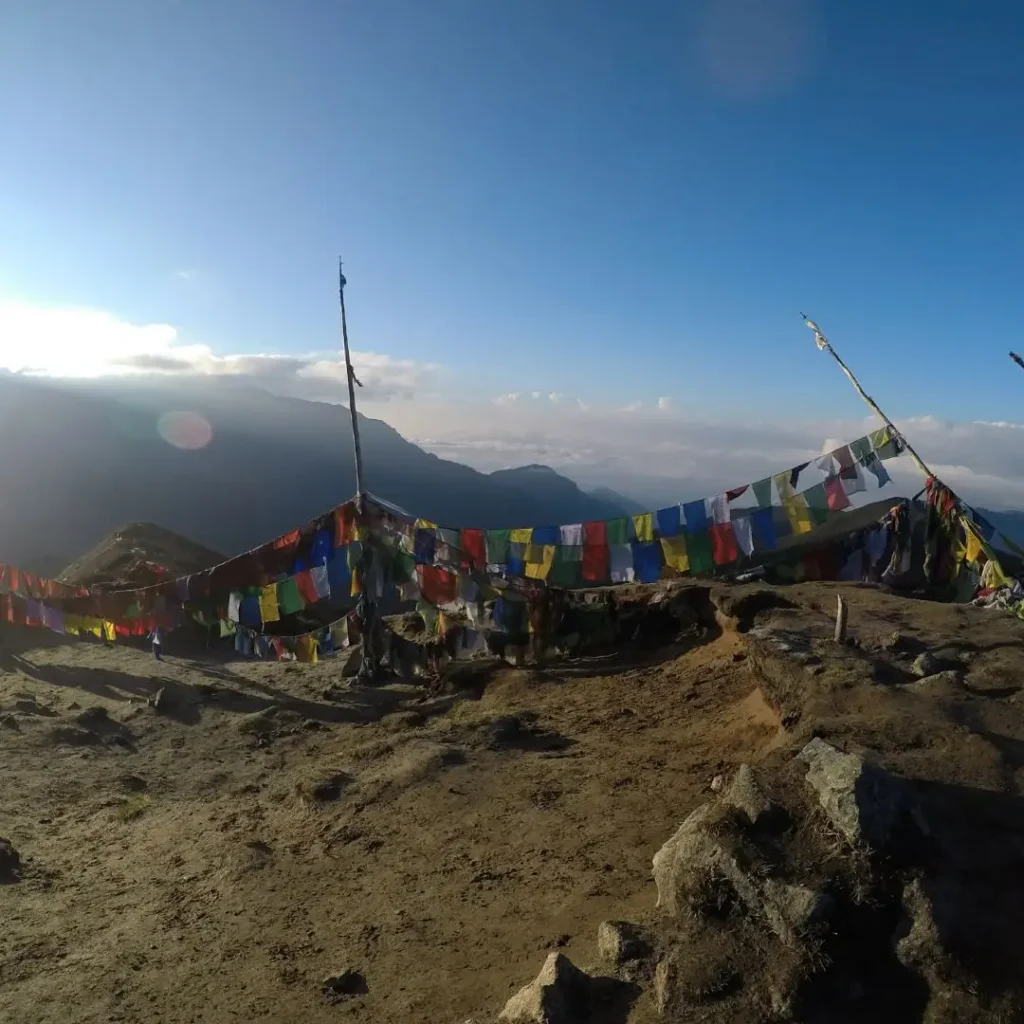
Khangchendzonga National Park Animals: What Wildlife to Expect
When you visit Khangchendzonga National Park, it’s like you are going into the world of wild animals living freely in their natural home. The park is famous for the Red Panda, often called the pride of Sikkim. High up in the mountains, the Snow Leopard moves quietly through the rocks, blending with the landscape.
You can also spot the Himalayan Black Bear, Musk Deer, and the rare Clouded Leopard if you keep your eyes open. The park is filled with colorful birds too, making it a peaceful place for bird lovers. Since the park covers everything from thick forests to rocky slopes, different animals live at different heights.
Every trail you walk or viewpoint you stop at offers a new chance to see the magic of nature. Always stay calm, quiet, and respectful here, you are a guest in their world.
Khangchendzonga National Park Map and Zones
Khangchendzonga National Park is so big and full of different landscapes that it is divided into different zones to help visitors explore better. While there is no strict zone system like a safari park, the park naturally spreads across valleys, glaciers, forests, and high mountains. Most tourists usually enter the park from Yuksom, a small town in West Sikkim that acts as the main gateway. From here, popular trekking routes like the Goechala Trek start.
On the map, you’ll notice key areas like Dzongri, Thangshing, Lamuney, Samiti Lake, and the famous Goechala Pass. These are important stops for trekkers who want to get close views of Mount Kanchenjunga. There are also areas like Zemu Glacier and Green Lake in North Sikkim, but these need special permits and are less visited.
Since Khangchendzonga National Park covers many remote and protected regions, not every area is open for casual tourism. Maps usually highlight only the main trekking paths, entry points, and natural spots like lakes, rivers, and peaks. If you are planning a trip, it’s a good idea to check a proper trekking map or hire a local guide to understand the routes clearly.
How to Reach Khangchendzonga National Park
To reach Khangchendzonga National Park, first travel to Gangtok, the capital of Sikkim. From Gangtok, you can hire a taxi or join a tour to Yuksom or other entry points.
The nearest airport is Pakyong Airport (about 124 km away), and the closest major railway station is New Jalpaiguri (NJP) in West Bengal. From NJP or Bagdogra Airport, taxis and shared jeeps are available to Gangtok.
How Khangchendzonga National Park Contributes to Tourism
Khangchendzonga National Park brings travelers from all over the world to Sikkim. Its trekking trails, like the famous Goechala Trek, offer adventure lovers a real taste of the Himalayas. Many people also visit to see rare animals like the Red Panda and beautiful birds.
Local communities around the park benefit a lot from tourism. Guides, homestays, and small shops all grow because of visitors. The park also helps promote eco tourism, where travelers enjoy nature without harming it.
By keeping its forests, lakes, and mountains protected, Khangchendzonga National Park gives people a reason to visit Sikkim and experience its natural beauty in a real, meaningful way.
Travel Tips for Visitors
- Get your permits (ILP or PAP) before visiting.
- Carry warm clothes and rain gear; weather changes fast.
- Hire a local guide for safety and better experience.
- Stay on trails and avoid littering.
- Walk slowly to adjust to high altitude.
- Carry enough cash; ATMs are hard to find.
- Best time to visit: April–June and September–November.
Conclusion
At the end I can say that Khangchendzonga National Park is a place where you can truly connect with nature. Whether you love trekking, spotting wildlife, or just enjoying the fresh mountain air, it offers something special for every traveler.
If you’re planning a trip to Sikkim, including a visit to this park in your Sikkim tour package is a great idea. It’s a chance to see one of the most beautiful parts of the Himalayas and create memories forever.
Frequently Asked Questions
Why is Kanchenjunga National Park famous?
It is renowned for its pristine Himalayan beauty, glaciers, and rare biodiversity. It’s also a UNESCO World Heritage Site.
Which animal is protected in Kanchenjunga National Park?
The snow leopard is one of the key protected species in the park.
What is the entry fee for Kanchenjunga National Park?
The fee is approximately ₹200 for Indian nationals and ₹400 for foreign tourists.
What is Kanchenjunga famous for?
Kanchenjunga is the third highest mountain in the world and holds spiritual significance
What is the famous food of Kanchenjunga?
Traditional Himalayan foods like momos, thukpa, and gundruk are popular in the Kanchenjunga region.
Why is Kanchenjunga called the Sleeping Buddha?
Because the mountain’s silhouette resembles a reclining Buddha when viewed from certain angles.

